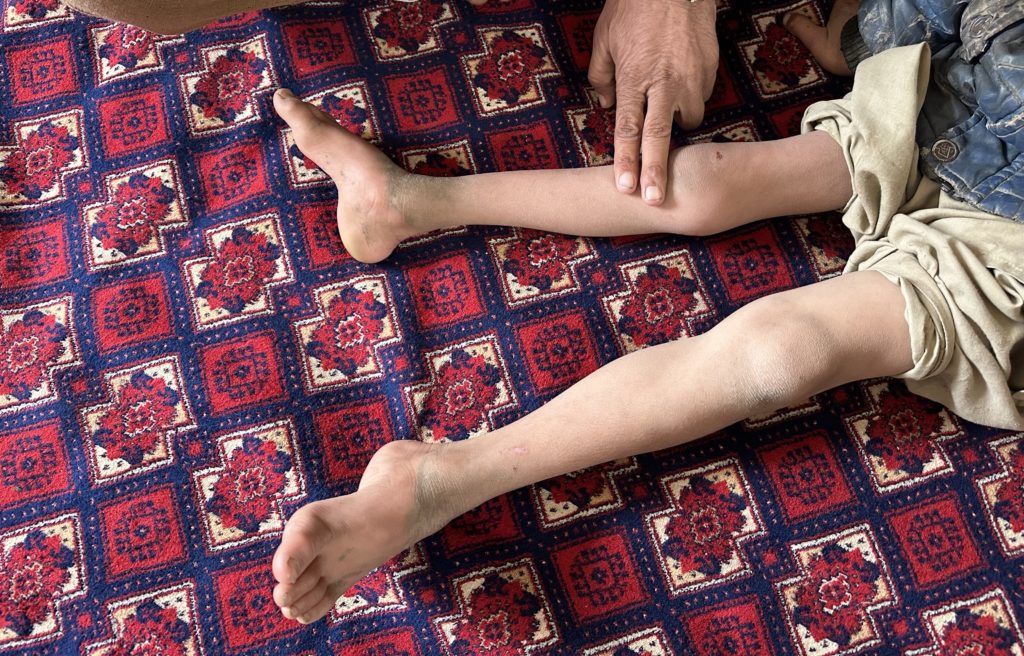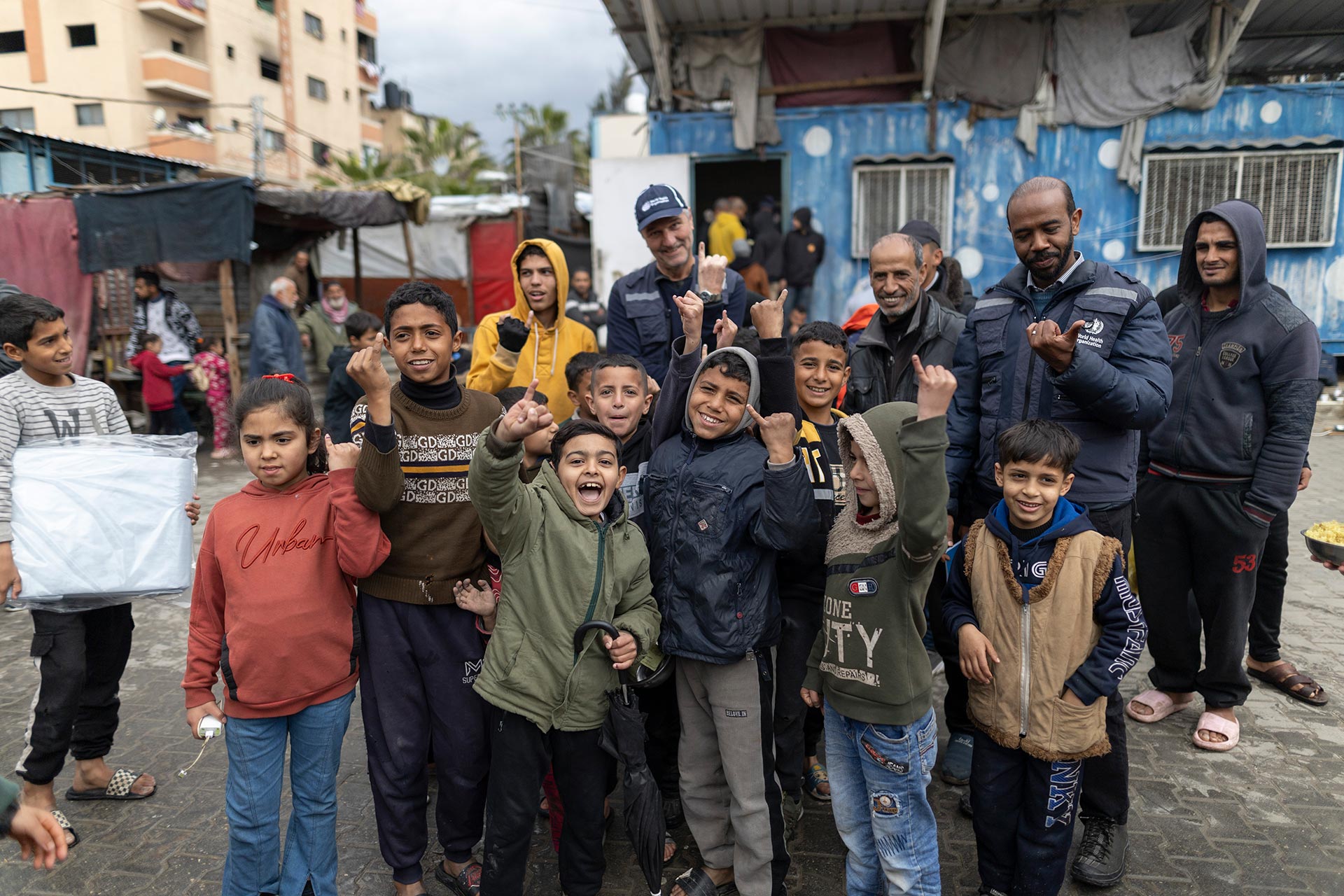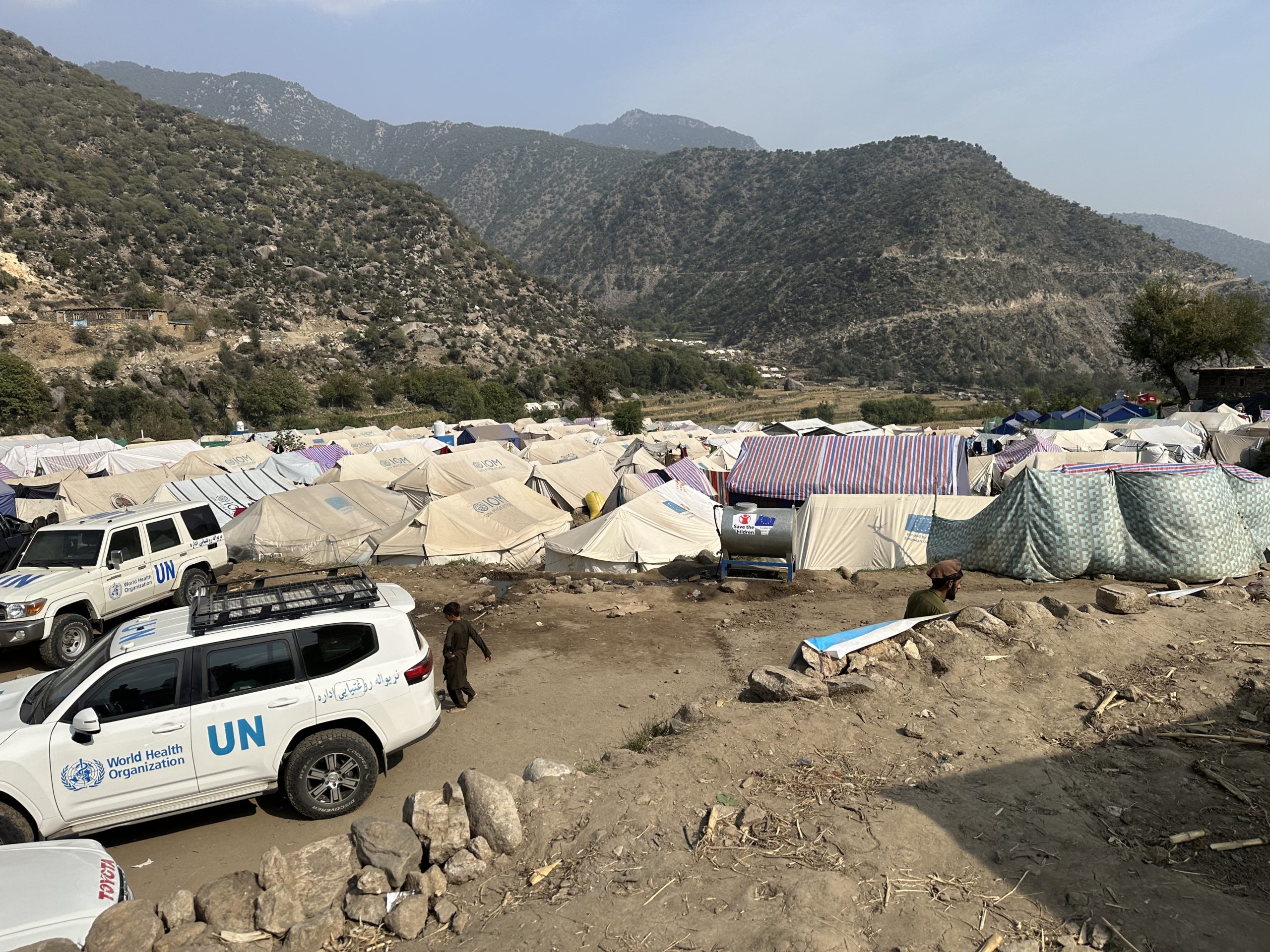
My name is Lalgul, and I am the father of Ghafar. We live in south-eastern Afghanistan. I was away from home when my son got sick. I returned and found Ghafur paralysed. He was one and a half years old.
It started with a high fever, then his right leg became paralysed. My wife and I took him to the district hospital, and he underwent various treatments, but he did not recover. I am a farmer, and I didn’t have enough money to take my child to Kabul for further treatments. Doctors at the provincial hospital diagnosed him with polio and told me that this virus has no cure, so we stopped visiting doctors and my son remained at home.
I have 7 children – Ghafar is the fourth. Raising a child paralysed by polio is difficult, and as parents, we must constantly take care of him. With a paralysed leg, we are always keeping an eye on him to make sure he doesn’t fall. Ghafar is in first grade now and getting to school can sometimes be challenging, especially on snowy and rainy days, when he struggles to walk through the mud with his crutches. I always feel sad when I see my son unable to walk while my other children can. It hurts when people ask questions about Ghafar’s condition, especially when I am asked why I didn’t vaccinate my child.
I worry about his future and how he will cope with life’s challenges. Sometimes he comes home from school and tells me children were bullying him and calling him “paralysed”. When I ask him to do certain tasks around the house, he struggles. Sometimes he gives up and tells me he can’t, “because I am crippled”.
I keep encouraging Ghafar to go to school. I want to see him go to university and complete his education. Because he is paralysed and cannot do physical work, as I do, I want Ghafar to become an educated man, have a salary and earn money with his knowledge.
My advice to parents caring for a child with polio is to be kind and understanding, fulfil their child’s needs and educate their other children to be understanding.
I didn’t vaccinate my son during polio vaccination campaigns or when the polio vaccine was available at the clinic. After polio paralysed Ghafar, I understood how important it is to vaccinate our children against this terrible disease. Now, I vaccinate my other children against polio at every opportunity.
I also talk to people in our village, especially those who refuse the vaccine, and tell them about the importance of the polio vaccine. I tell them that if they don’t vaccinate their children, those children might be paralysed like my son.



